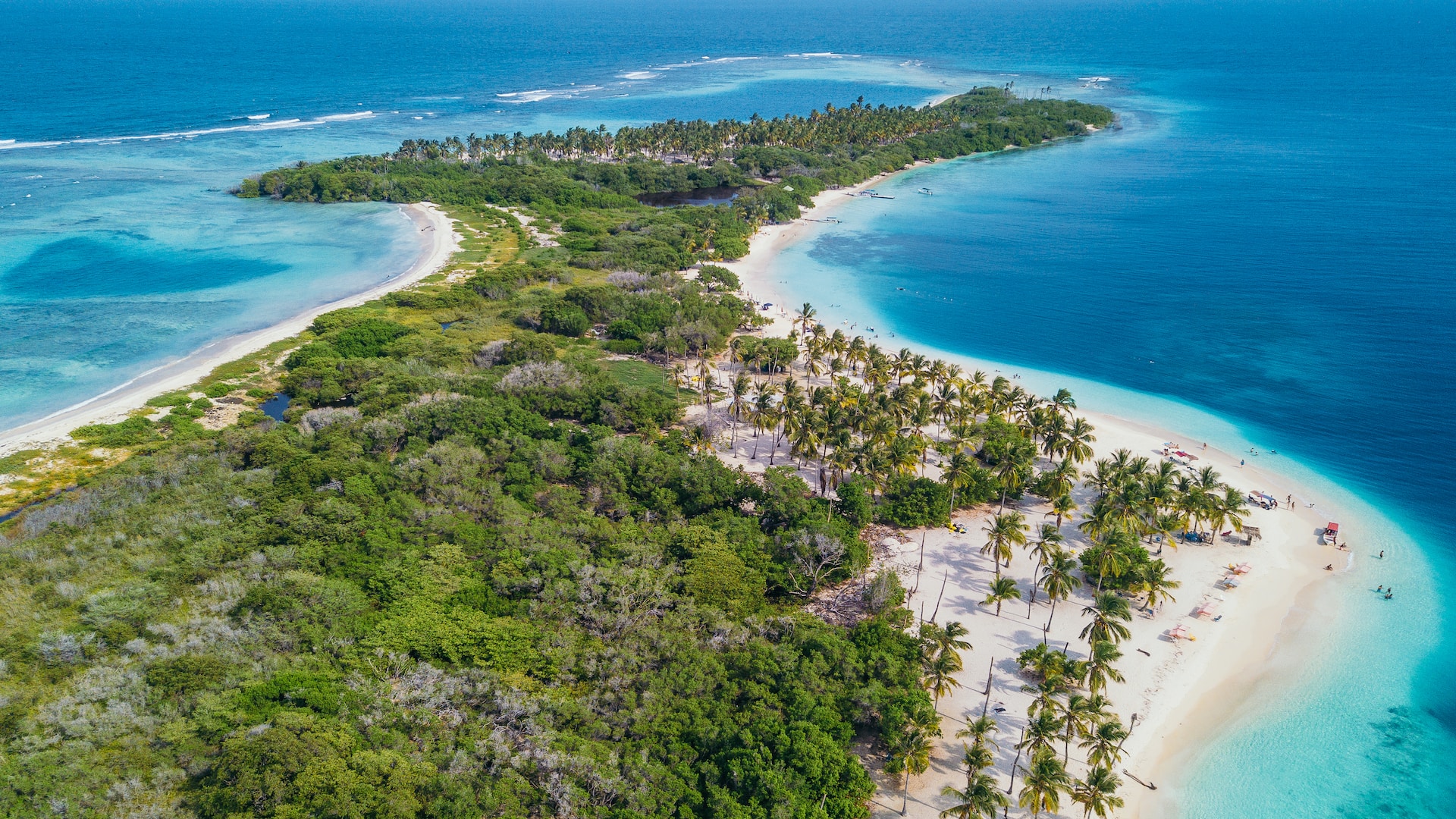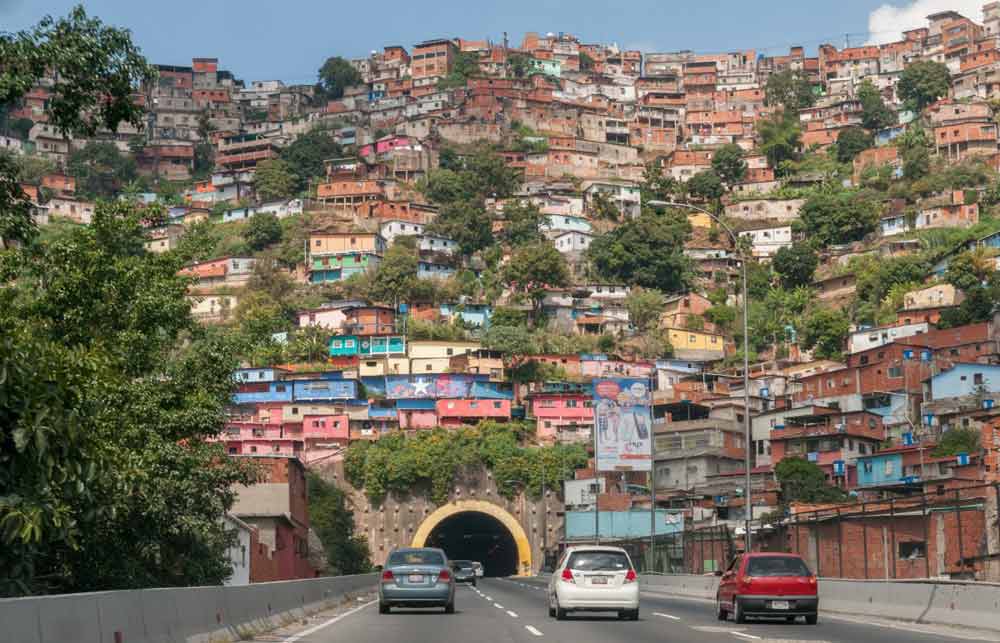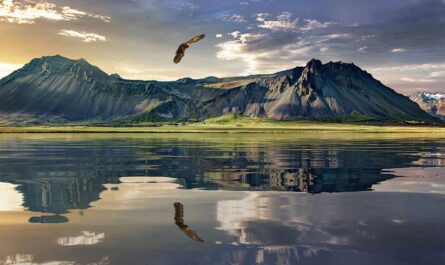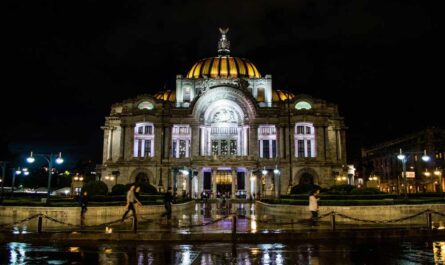Caracas, Venezuela interesting facts are full of knowledge, learning, fun, and surprise. Caracas, the bustling capital of Venezuela, stands as one of South America’s major urban centers, pulsating with industrial, commercial, educational, and cultural vitality. As Venezuela’s largest metropolitan agglomeration, Caracas exerts a profound influence on the nation’s economic, social, and political landscape, serving as a hub of innovation, opportunity, and diversity.
Caracas, Venezuela Interesting and Fun Facts
Founded in 1567 as Santiago de León de Caracas, the city of Caracas has undergone centuries of growth and transformation, evolving from a modest colonial settlement into a vibrant metropolis. However, it was in the 1940s that Caracas experienced a dramatic expansion, catapulting it into a period of unprecedented urban development and population growth. This explosive growth propelled Caracas to prominence, extending its reach to even the remotest corners of Venezuela, and solidifying its status as the nation’s primary urban center.
1. Geographic Extent: The Sprawling Metropolis of Caracas
While officially located within the confines of the Capital District, Caracas transcends administrative boundaries, with significant portions of its territory extending into the neighboring Miranda state. This sprawling urban landscape sprawls across the rugged terrain of Venezuela’s coastal region, encompassing diverse neighborhoods, districts, and suburbs that reflect the city’s rich cultural tapestry and socioeconomic diversity.
2. Demographic Dynamics: Population Trends and Growth
Over the years, Caracas has experienced fluctuations in its population dynamics, reflecting shifts in migration patterns, economic conditions, and urbanization trends. According to census data, the city’s population stood at 1,836,032 in 2001, surging to 1,942,652 by 2011. This demographic growth underscores Caracas’s status as a magnet for opportunity-seekers and aspiring residents, drawn to the city’s promise of prosperity, cultural vibrancy, and cosmopolitan lifestyle.
3. The Unique Physical Landscape of Caracas
Caracas boasts a remarkable natural setting that captivates the senses. Situated amidst the Venezuelan coastal range, the city finds itself nestled between imposing mountains and the shimmering expanse of the Caribbean Sea. These mountains, with their steep inclines, create a dramatic backdrop, rising abruptly from the coastline. Consequently, the available flat terrain for urban expansion is scarce, forcing the city to adapt and evolve within the confines of this rugged terrain.
4. Mountain Slopes and Vegetation
The upper slopes of the mountains surrounding Caracas are often shrouded in clouds, particularly in the northern reaches. Despite this misty veil, the vegetation thrives, boasting a diverse array of plant life that includes remnants of lush forests. This verdant foliage retains its vibrant green hue throughout the year, lending an enduring vitality to the landscape. Within the city itself, pockets of lush greenery adorn major parks and gardens, with notable examples including the Botanical Garden, adding a touch of natural splendor to the urban environment.
5. Environmental Challenges and Erosion
However, alongside the lush vegetation, Caracas grapples with environmental challenges, chief among them being erosion. Bare slopes, left vulnerable by deforestation and urbanization, are particularly susceptible to the erosive forces of wind and water. This erosion not only scars the landscape but also poses a threat to the stability of the surrounding ecosystems, necessitating concerted efforts towards sustainable land management and conservation.
6. Decline in Bird Population
The once-thriving bird population of the valley has witnessed a precipitous decline in recent years. Once boasting over 100 species, the avian diversity of the region has dwindled, signaling ecological imbalance and environmental degradation. Factors such as habitat loss, pollution, and climate change likely contribute to this decline, underscoring the pressing need for comprehensive conservation measures to safeguard the valley’s biodiversity.
7. Historical Context of Caracas
Caracas, the capital city of Venezuela, is situated on the banks of the Guaire River, approximately nine miles inland from the Caribbean Sea. Founded in 1567 by Diego de Losada, the city bears the imprint of its colonial origins. With the proclamation, “I take ownership of this country in the name of God and the King,” Losada established Caracas as a bastion of Spanish influence in the New World, laying the foundation for centuries of cultural and historical richness.
8. Caracas’ Unique Geographic Location
Nestled within a high rift valley ensconced by the Cordillera del Litoral, Caracas boasts a geographical setting that is both breathtaking and imposing. The city finds itself enveloped by majestic mountains on all sides, a geographical feature that not only lends it an unparalleled scenic beauty but also shapes its identity and development in profound ways.
9. The Majestic Cordillera del Litoral
The Cordillera del Litoral, a mountain range that commands admiration with its towering peaks and rugged terrain, stands as a sentinel guarding Caracas. Rising to impressive altitudes exceeding 8,600 feet at the Pico Oriental and over 7,000 feet at El Avila, this formidable natural barrier imposes itself upon the cityscape, exerting a profound influence on Caracas’ growth patterns and urban expansion.
10. Impact on Culinary Landscape
Unsurprisingly, Caracas’ unique geographical setting has left an indelible mark on its culinary landscape, fostering a gastronomic scene that is as diverse as it is distinctive. Over the ages, the city’s cuisine has evolved in tandem with its geographical constraints and cultural influences, resulting in a culinary tapestry that reflects the fusion of traditional flavors, local ingredients, and global influences.
11. Andes: Nature’s Majestic Reach
The Andes Mountains, a colossal natural wonder, span from the verdant landscapes of Colombia to the shores of Trinidad, an island nestled in northern Venezuela. These majestic peaks form an awe-inspiring panorama, stretching eastward and bestowing breathtaking vistas upon those who behold their grandeur. Serving as a geographical backbone to the region, the Andes encapsulate diverse ecosystems and cultural legacies, shaping the identity of the lands they traverse.
12. Caracas’s Safety Quandary
In an unsettling revelation, Caracas harbors a sobering statistic—a 0.2 percent probability of experiencing fatal violence. This stark reality underscores the city’s precarious safety landscape, dispelling any notion of carefree strolls through its streets. Vigilance becomes paramount in navigating Caracas’s urban terrain, where caution must accompany every step, highlighting the imperative of guardedness in this vibrant yet perilous metropolis.
13. Serrana del Interior: Nature’s Resilience
To the south of Caracas lies the Serrana del Interior, a rugged expanse characterized by its rocky terrain and undulating landscapes. Despite its lower altitude compared to the Andes, this region exudes a distinct charm, offering a glimpse into nature’s resilience amidst formidable challenges. The Guaire River, once a formidable watercourse coursing through the valley, now bears the scars of human intervention, dwindling in size and succumbing to heavy pollution. Despite these adversities, the Serrana del Interior stands as a testament to nature’s enduring spirit, beckoning explorers to uncover its hidden wonders while confronting the environmental toll of human activity.

14. Caracas’s Vibrant Nightlife: A Haven for Entertainment
Caracas pulsates with energy long after the sun sets, as its vibrant nightlife and entertainment scenes come alive. Renowned for its eclectic mix of bars, clubs, and cultural venues, the city offers an array of experiences for nocturnal revelers. One highlight on Caracas’s cultural calendar is the annual international jazz festival, a testament to the city’s appreciation for music and artistic expression. Each year, this event attracts jazz enthusiasts from around the globe, further enriching Caracas’s reputation as a hub of creativity and cultural exchange.
15. Population Dynamics: Beyond Official Figures
Officially documented as home to approximately two million inhabitants, Caracas’s population extends far beyond the confines of official statistics. In reality, millions more reside within the city’s sprawling slums, their lives and experiences often overlooked in traditional census counts. This hidden populace, residing in informal settlements and marginalized communities, underscores the complexity of urban life in Caracas and the disparities that persist within its social fabric. How AI, ChatGPT maximizes earnings of many people in minutes
16. Unique Holiday Traditions: Roller Skating to Church
In a charming display of community spirit and tradition, it’s not uncommon for families and friends in Caracas to don their roller skates and glide their way to church during the holidays. This quirky custom has become deeply ingrained in the city’s cultural tapestry, with roadways specially prepared in advance to accommodate the influx of skaters. The sight of congregations rolling merrily towards places of worship reflects Caracas’s distinctive blend of religious devotion and festive camaraderie, offering a glimpse into the city’s rich heritage and the joyous rituals that unite its residents. Motivation – Mind – Success – Thinking – Productivity – Happiness
17. Ethnic Mosaic: Mestizo Dominance in Caracas
Reflecting the broader demographic composition of Venezuela, Caracas boasts a predominantly mestizo population—a fusion of European, indigenous Native American, and African ancestries. Within this intricate tapestry of ethnic heritage, a smaller yet notable presence of individuals of black African descent enriches the cultural mosaic, alongside the blending of white and indigenous lineage. While individuals of Asian descent are relatively scarce, Caracas has witnessed a substantial influx of Europeans following the aftermath of World War II, further diversifying its populace and contributing to its cosmopolitan identity. Business – Money Making – Marketing – E-commerce
18. European Influx: Post-War Immigration Wave
Caracas emerged as a magnet for European immigrants, particularly Spaniards, Portuguese, and Italians, during the 1950s. Drawn by the promise of economic opportunities and a chance for a better life in the burgeoning urban landscape, these waves of immigrants infused the city with their distinct cultures and traditions. Their contributions left an indelible mark on Caracas’s social fabric, shaping its culinary landscape, architectural heritage, and cultural expressions. The influx of European migrants not only reshaped the demographics of Caracas but also enriched its collective identity, epitomizing the city’s status as a melting pot of diverse cultures and backgrounds. Health books, guides, exercises, habits, Diets, and more
19. Santiago de León de Losada: Founding Father of Caracas
In the annals of history, Santiago de León de Losada stands as the visionary founder of Caracas, establishing the city in 1567. With bold ambition and unwavering determination, Losada laid the foundation for what would evolve into one of Latin America’s most dynamic urban centers. His pioneering spirit and foresight set the stage for centuries of growth and development, shaping the destiny of a city that would leave an indelible mark on the course of Venezuelan history.
20. Birthplace of a Revolutionary: Simón Bolívar
Caracas holds the distinction of being the birthplace of one of Latin America’s most revered figures—Simón Bolívar. Born within its hallowed confines, Bolívar would go on to etch his name in the annals of history as the liberator of multiple South American nations from Spanish colonial rule. His revolutionary fervor and indomitable spirit inspired countless patriots, culminating in Venezuela’s historic rebellion against Spanish oppression. Bolívar’s legacy endures as a beacon of freedom and self-determination, forever intertwined with the destiny of his beloved Caracas. Fitness – Meditation – Diet – Weight Loss – Healthy Living – Yoga
21. Economic Heartbeat: Caracas’s Role in Venezuela
Nestled within the bustling confines of Caracas beats the economic heart of Venezuela, pulsating with vitality and enterprise. As the epicenter of the nation’s economic activity, Caracas serves as a crucible of commerce and trade, propelling the wheels of industry and innovation forward. Its bustling streets and towering skyscrapers bear witness to the ceaseless rhythm of economic endeavor, embodying the dynamism and resilience of Venezuela’s entrepreneurial spirit.
22. Seat of Power: Governance in Caracas
Caracas not only reigns supreme as the economic powerhouse of Venezuela but also serves as the nerve center of the nation’s governance. Within its storied confines, the main government offices of Venezuela stand as bastions of authority and decision-making. Here, amidst the corridors of power, the fate of a nation is shaped and the course of history charted. Caracas’s pivotal role as the seat of government underscores its significance as the beating heart of Venezuelan democracy, embodying the ideals of liberty, democracy, and progress. RPM 3.0 – 60% CONVERSION & Money for Affiliate Marketing
We hope you have enjoyed these Caracas Venezuela facts!
More Interesting Articles




